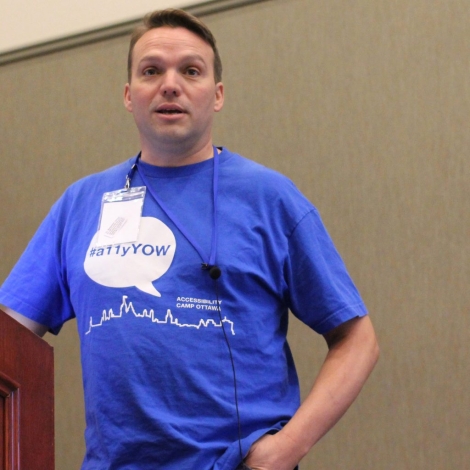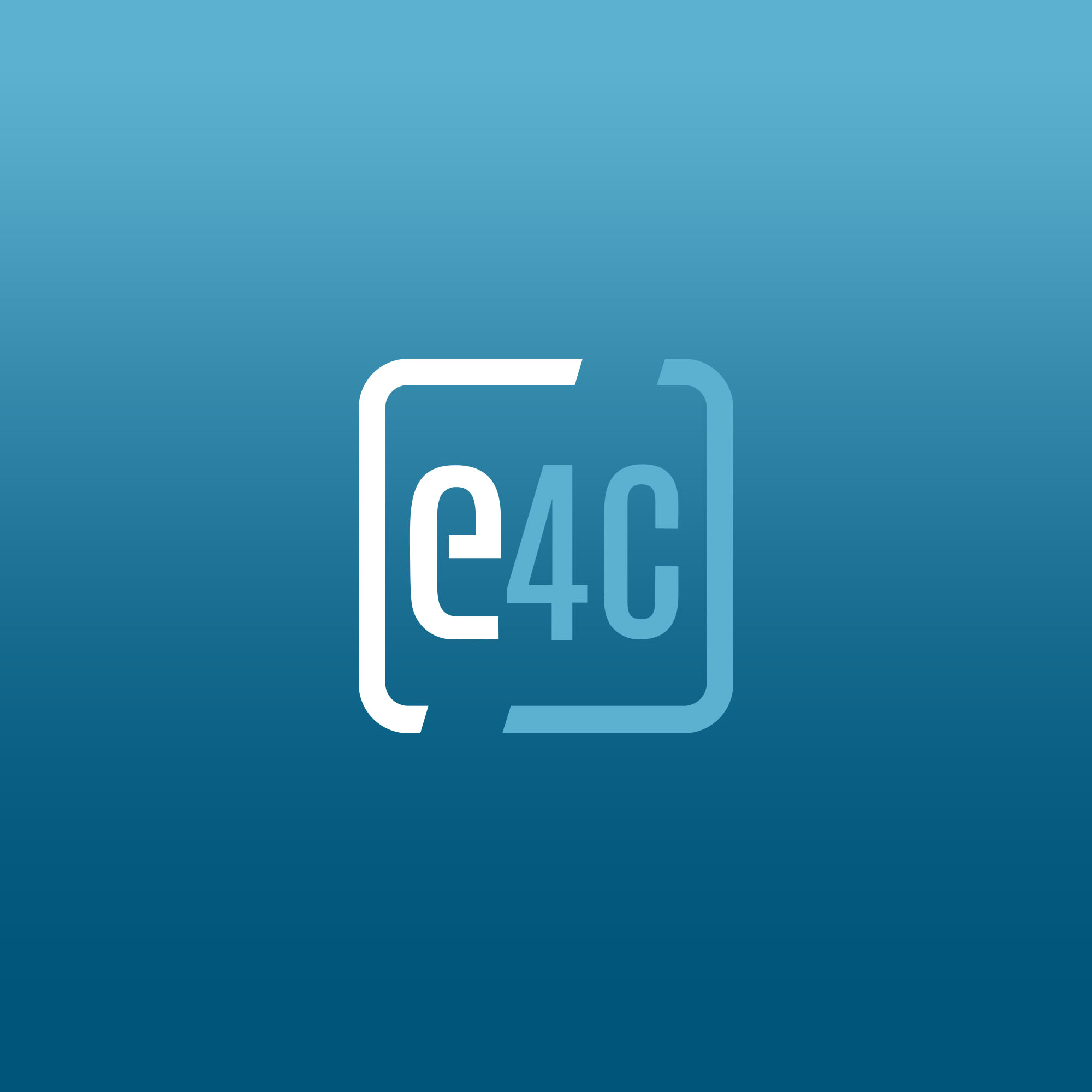I believe in solving problems at the root. I’ve been using open source software for decades, but became more passionately involved when it became clear that there was a problem I could help address that could provide a strong benefit to others. By investing time into improving Drupal’s accessibility, I have helped two percent of the web to be more accessible.
Drupal is probably the single biggest content management system (CMS) used in government today, but it is still difficult to get departments to invest it. Many government IT shops are either very MicroSoft oriented or believe in building everything themselves. Many managers have adopted fear, uncertainty and doubt (FUD) about software that is open and free.
By investing time into improving Drupal’s accessibility, I have helped two percent of the Internet to be more accessible.
Working with the Drupal community, I have seen how often short-sighted governments can be about their information technology. In Drupal 8 Core, a single blind Italian high school student contributed more in the year before he started university than all of the governments in the world combined. Now if this wasn’t a human rights issue like accessibility, I can see how this wouldn’t be such a big issue. Lots of people are employed by governments around the world to see that their websites work for people with disabilities, yet this work tends to stay in silos.
Despite the fact that governments are not really competing with other government agencies most of the time, there is a scarcity mindset which tends to encourage agencies to fend for themselves, rather than think about the context of the bigger problem.
In Drupal 8 Core, a single blind Italian high school student contributed more in the year before he started university than all of the governments in the world combined.
“Free and open” has connotations of “cheap and insecure” in many people’s heads. But the reality is closer to this:
- More flexible and allowing for greater innovation
- More secure, reliable and robust given the communities that leverage the code
- Better total cost of ownership, because the responsibility is shared widely
- Improved reusability, as the code can be more easily repurposed for others
- More accessible and standards compliant
People are starting to see “open and free” as indeed a better way to develop technology, and leading organizations like 18F in the USA and Government Digital Service (GDS) in the UK are helping to make that more broadly understood.
Unfortunately, government contracting has tended toward fewer big contracts, rather than than many small contracts. There are very few big software projects developed by government that can be classified as successful. One of the big failures that got a lot of media attention is the HealthCare.gov scandal which plagued Obama’s administration and cost over (USD) $1 billion. Aside from the fact that it is difficult to prepare and respond to a billion-dollar contract, few firms are even capable of bidding on projects of that size.
Leveraging open source and open standards ensures that government can “build on the shoulders of giants.”
Smaller contracts allow iterative, agile work to ensure that the true needs of the client are addressed. Leveraging open source and open standards ensures that government can “build on the shoulders of giants.” Sadly, the government still doesn’t have a good system in place to value free, let alone buy it. 18F has done a lot to change ideas of open source procurement in the US government, and have proposed ideas like modular contracting to help overcome barriers within the bureaucracy: modularcontracting.18f.gov.
I’ve been looking to find examples of Requests for Proposals (RFPs) and policies that support open source software, as they haven’t been that common. Fortunately, we are seeing more references to open source tools in RFPs, especially when associated with a common brand like Drupal or WordPress. The focus is still on getting free stuff, rather than leveraging a vibrant community to find ways to collaborate on common problems.
Governments choosing to procure software from firms that give back to the community would do a lot to allow those firms to do more. Public servants contributing their bugs, feature requests and patches to the open source community would also do a lot to help grow the number of users/developers. I’ve published some sample text for contracting here: github.com/mgifford/open-source-contracting.
Many will have heard discussions about Open Source/Free Software. Is it “Free as in Beer” or “Free as in Speech?” Both are good questions, but I prefer “Free as in Kittens.” You still have to maintain it. No matter what software solution you choose, it is critical that it have the critical mass to ensure that it meets your needs not only today but in a few years’ time.
Software on the Internet is only useful with an ecosystem of software that is around it. That ecosystem is constantly changing as standards are updated, people’s use-cases change, browsers are updated, and the legal frameworks that they all operate in is in flux and changes between jurisdictions.
You will never have a piece of software that is 100 percent secure or accessible, and it takes a concerted effort of a big team to take on big challenges like these.
Challenges like security, accessibility, usability and performance are also issues that require constant vigilance. You will never have a piece of software that is 100 percent secure or accessible, and it takes a concerted effort of a big team to take on big challenges like these.
In the Drupal community, a very small team of people have acted strategically to advance our accessibility. Drupal 8 is now very close to achieving compliance with the standard of Web accessibility, WCAG 2.0 AA (Web Content Accessibility Guidelines version 2.0 AA) out of the box. We are also working on issues for ATAG 2.0 and even the new WCAG 2.1. This, too, has a procurement angle, as most often what we see in RFPs is a generic “must comply with WCAG standards” line which is often meaningless if it isn’t also toothless. I am collecting examples of good wording on accessibility in contracting here: github.com/mgifford/a11y-contracting.
What would it look like if governments made a concerted effort to take on some of these big challenges collectively? What if they found ways to invest in the projects which are making good progress with these pressing issues, while leveraging very meager resources?
How do we get more people investing to support the open source technology that we all depend on?
If we can strike at the root of an issue, we are more likely to resolve it. How do we get more people investing to support the open source technology that we all depend on?
Technology moves very quickly and it is very difficult for governments in Western countries to get it right. It is even more difficult for NGOs and social enterprises to properly invest in as they have much smaller budgets to contend with. There is a great opportunity for people in the Global South to leapfrog some of the proprietary IT approaches and jump right to one that is based on open source code and an open, collaborative approach.
As Jim Whitehurst, the CEO of RedHat has said, “Open source isn’t about saving money, it’s about doing more stuff, and getting incremental innovation with the finite budget you have.” It’s not like governments and NGOs in any country aren’t trying to do a lot more with a lot less, and an open approach is key to achieving that.
About the Author
Mike Gifford is Senior Strategist at CivicActions and a Drupal Core Accessibility Maintainer. Previously, he was CEO of OpenConcept Consulting Inc. and Co-founder of CivicTech Ottawa, Canada. He is also a father, Quaker and a prolific photographer. See his contributions to GitHub and his photos on Flickr.



Great article! I fully agree with the vision.
Our team at Employment and Social Development Canada recently launched a public pilot on micro-acquisition. We publish work opportunities of up to $10K for development of open source code. Once delivered, we pay in a timely fashion by credit card or PayPal. The goal is to attract workers who wouldn’t usually work with governments (think small businesses, students, etc.).
Anyway, we are trying to do our part 😉
Feel free to reach out to us anytime: https://micro-acquisition.alpha.canada.ca/en/index.html